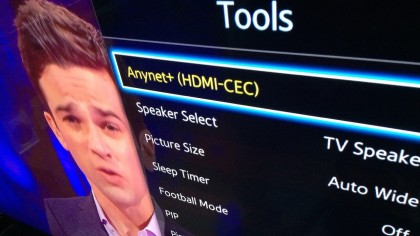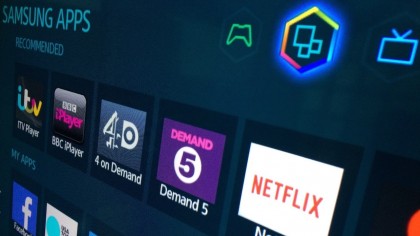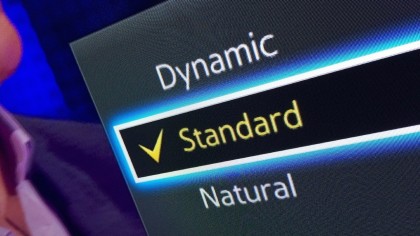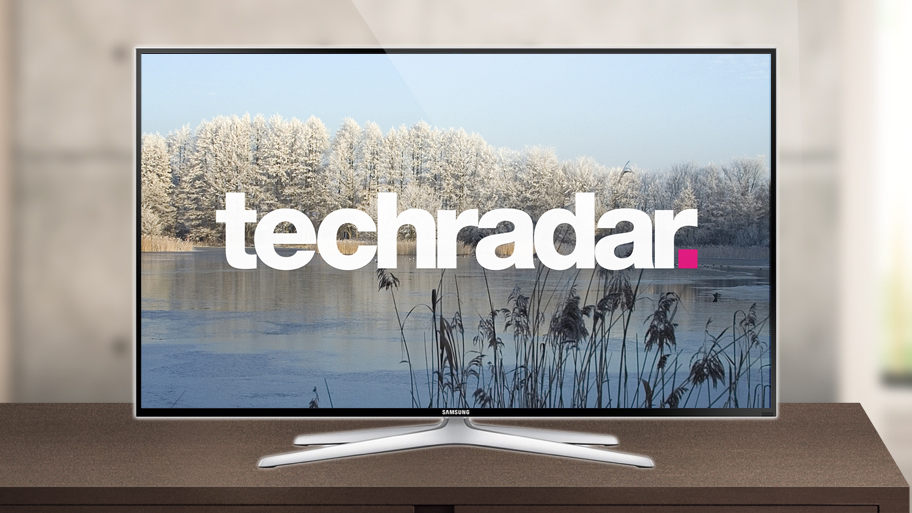Why you can trust TechRadar
The UE32H6400 offers great all-round images for general use. It may not be the ideal screen for playing-back that 4K movie you just made, but for anyone after a catch-all TV designed to get the most from Freeview HD channels of all qualities, DVDs, Blu-ray discs, games and stuff from USB sticks, the UE32H6400 hardly puts a foot wrong.
AV enthusiasts will love the ability to tweak almost everything (there's a full colour management system) and apply changes to specific inputs, which is unusual on such a small TV.

Since the UE32H6400 doesn't ship with any 3D glasses, I couldn't watch our test disc Gravity in 3D, but in 2D it easily shows-up the strengths of the UE32H6400. Perhaps most impressive is the uniformity of the UE32H6400's LED-backlit LCD panel, which immediately flags this up as a quality product.
Sure enough, with movie mode engaged and with Stone and Kowalsky drifting through space there's a convincing blackness, while long-shots of a rotating Earth are both bright and exceptionally well coloured. The detail is just stunning, too; who said Full HD is wasted at the 32-inch size?

Motion sequences could be more fluid, certainly, but with Motion Plus on the middle-ranking Standard setting the sequence of debris flying into the space shuttle remains highly watchable. There is some motion blur, but the small screen size means it's not ruinous.
Switch to an episode of The Big Bang Theory on E4 HD and the UE32H6400 retains its excellent, smooth and highly detailed image, while Jungle Atlantis on BBC Two in standard definition isn't the low-bitrate rubbish I had expected.

It does, however, look even better with digital clean view engaged, which can be found in the Picture Menu menus. The problem when watching standard definition isn't a lack of detail at all, but instead some noticeable picture noise during low-lit sequences.
Sign up for breaking news, reviews, opinion, top tech deals, and more.
Throughout all of this the viewing angle is as wide as we've seen; watch from the wings and the contrast and colour hardly changes.

Jamie is a freelance tech, travel and space journalist based in the UK. He’s been writing regularly for Techradar since it was launched in 2008 and also writes regularly for Forbes, The Telegraph, the South China Morning Post, Sky & Telescope and the Sky At Night magazine as well as other Future titles T3, Digital Camera World, All About Space and Space.com. He also edits two of his own websites, TravGear.com and WhenIsTheNextEclipse.com that reflect his obsession with travel gear and solar eclipse travel. He is the author of A Stargazing Program For Beginners (Springer, 2015),
